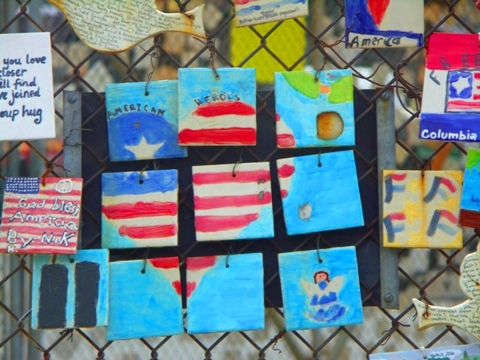
A question that concerns all is how to transform loss into gain. Perhaps the important lesson here can be found in how countries and individuals squander political and social capital, thus transforming gain into loss. This should be the starting point in learning from other peoples’ lessons.
The best example of transforming gain into loss is that of the United States of America after the September 11th, 2001 attacks. On the day of the attacks, all – including the traditional enemies of the U.S. – supported and stood by her in the face of terrorism, which struck her without reason. The world condemned Al-Qaeda’s act of destruction and killing. This support continued for some time, until the U.S. began its foolish responses, politically and in the media, and gradually support transformed into hatred of the U.S., her head of state, and her policies.
The American people did not and do not understand what happened, and did not ask as to how the world’s sympathy after 9/11 could have transformed into hatred. Americans instead chose to ask the naive question, asked by Bernard Lewis and many prejudiced groups: “Why do they hate us?”
Those Americans who asked the question “Why do they hate us?” did not realize that their media, which lobbed accusations arbitrarily, was most responsible for the subsequent wave of hatred towards the U.S. The American media treated the world on the basis that the U.S. is the strongest country in the world, able to wipe nations off the face of the earth with its nuclear weapons and thus discipline Islamic countries. The world began to hate the U.S. when American chauvinism rose to the surface, with Americans demanding revenge on television and internet sites. These people were most responsible for transforming the protest of love, pity and sympathy that the world expressed towards America into fierce tides of hate, which began in the Islamic world and spread to cover the whole world, including America’s best friends, and among them France and Britain.
In the American experience lies a lesson for individuals, groups and states about how to transform gain into loss and squander social and political capital until the point of bankruptcy.
The first lesson for Al-Qaeda and the terrorists was not to widen the scope of blame. Hence, when America decided to maximize the breadth of its campaign by increasing the scope of its accusations against others, the issue grew to involve those who had nothing at all to do with what happened. The invasion of Iraq is an example of such. America adopted the strategy of appealing to her friends in support of waging wars, which drained what credibility she had amongst her friends. The slide did not stop at loss of support over Iraq, but even reached to doubts over the 9/11 attacks themselves.
The loss of support had its tipping point, in which a critical bloc turned from friends to enemies. This point was a very sensitive one and should be considered by all those who study the matter, from individuals to states. This is the moment when medicine turned into malady. This a moment that has been written about greatly, and has been recognized as the moment in which “the issue was pushed beyond its limits and thus had the opposite effect.” And it seems that everyone is feeling its consequences.
America, despite being a great power and having the means to cover its political errors and mistakes in the media, failed to learn this lesson. And small countries and individuals who embraced the U.S.’s path in widening the crosshairs did not learn the lesson, too. These are the people who need to look once more at America’s experience in turning friends into enemies. We can only hope that they do so.

Leave a Reply
You must be logged in to post a comment.